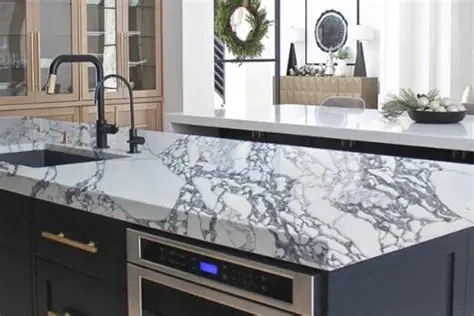Granite is one of the most widely recognized natural stones in the world. From home interiors to massive geological formations, it plays an essential role both as a construction material and as a key subject of geological study. But one question continues to generate confusion among homeowners and students alike: Is granite a metamorphic rock? This article explores the geological classification of granite, the science behind its formation, and how it compares to other rock types like sedimentary and metamorphic rocks.

What Is Granite?
Understanding Granite as a Rock Type
Granite is a coarse-grained igneous rock primarily composed of quartz, feldspar, and mica. It is known for its durability, aesthetic appeal, and wide range of colors and textures.
Granite Geology and Composition
Granite forms from the slow crystallization of magma beneath the Earth’s surface. Its mineral composition includes:
- Quartz (20–60%)
- Feldspar (35–75%)
- Mica and amphiboles (up to 10%)
This composition gives granite stone its distinctive speckled appearance and strong physical properties.

Is Granite Metamorphic?
The Classification of Granite
No, granite is not a metamorphic rock. It is classified as an intrusive igneous rock, meaning it solidifies from magma deep within the Earth’s crust. While granite may sometimes be mistaken for metamorphic rocks due to its hardness and structure, its formation process is fundamentally different.
Why Granite Is Not Metamorphic
Metamorphic rocks form when existing rocks are subjected to high heat and pressure over long periods, leading to physical and chemical changes. Granite, on the other hand, originates directly from molten rock. This places it in the category of igneous rocks rather than sedimentary or metamorphic.
Anchor Text:
- Learn more about its classification: Is Granite Extrusive or Intrusive?
- Discover how it contrasts with sedimentary rocks: Is Granite Sedimentary?
Characteristics of Granite
Physical Properties
Granite is valued for its:
- Hardness (6–7 on the Mohs scale)
- Low porosity
- Resistance to scratches and heat
- Wide range of colors including black, white, grey, and red
These features make granite ideal for interior surfaces such as white granite countertops, black granite countertops, and granite backsplash designs.
Natural vs. Engineered Granite
Natural granite is quarried directly from the Earth and cut into slabs. Engineered granite, often confused with quartz, is a composite material made from crushed stone and resin. Both offer durability, but natural granite tends to offer more unique patterns and colors.
Applications of Granite in Modern Living
Countertops and Home Design
Granite is a go-to material for:
- Granite kitchen countertops
- Granite bathroom countertops
- Granite backsplash pairing with cabinets
- Clean granite countertops using non-abrasive cleaners
Countertop Maintenance Tips
To preserve granite’s shine:
- Seal granite annually to prevent stains
- Polish granite surfaces with a pH-balanced cleaner
- Repair chips in granite using color-matching epoxy
- Remove stains from granite using a poultice mixture
Related Guides:
Cost and Buying Guide
Granite Countertop Cost
Granite countertop cost depends on factors such as color, origin, and slab thickness. Premium colors or imported options may command higher prices.
Where to Buy Granite Countertops
You can source granite from:
- Wholesale granite suppliers
- Local granite showrooms
- Retailers offering affordable granite countertop options
Explore the Best with Aardwolf:
- Aardwolf granite countertop collection
- Aardwolf premium granite slabs
- Aardwolf granite installation services
- Aardwolf granite pricing guide
- Best Aardwolf granite colors
Comparison with Other Rocks
Granite vs Quartz Countertops
Granite is 100% natural while quartz is engineered. Granite offers more natural patterning, while quartz provides consistency.
Granite vs Marble: Pros and Cons
Marble is softer and more porous, requiring more maintenance than granite.
Granite vs Soapstone Durability
Soapstone is softer and prone to scratching, making granite better than concrete countertops and soapstone in high-traffic areas.
Natural Stone Countertop Comparison
Compared to other stones, granite offers the best balance of beauty, strength, and longevity.
Geological Formation: The Science Behind Granite
The Igneous Rock Cycle
Granite is formed when molten magma cools slowly underground, allowing large crystals to develop.
Intrusive Nature of Granite
Being intrusive, granite cools inside the Earth’s crust, unlike extrusive rocks that cool rapidly on the surface.
Final Thoughts: Granite’s True Classification
Granite is not metamorphic, nor is it sedimentary. It stands as a strong representative of intrusive igneous rocks, celebrated for both its geological significance and practical utility.
Whether you’re researching for a geology project or planning your kitchen remodel, understanding granite’s origins helps you appreciate this remarkable natural stone even more.

